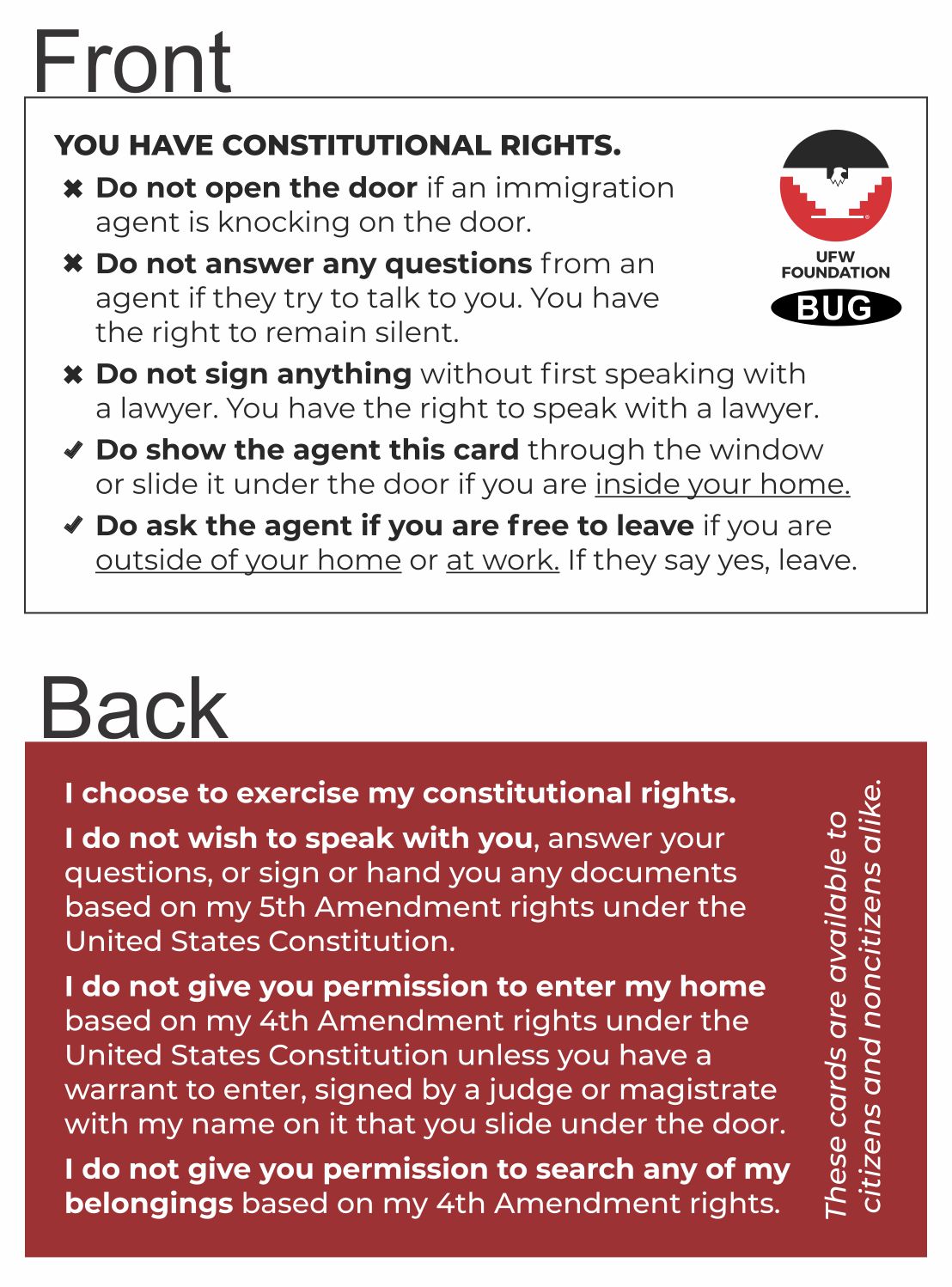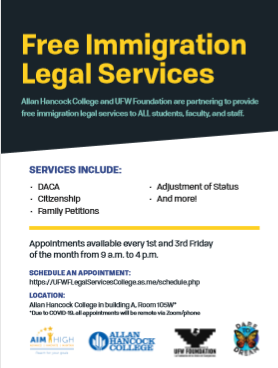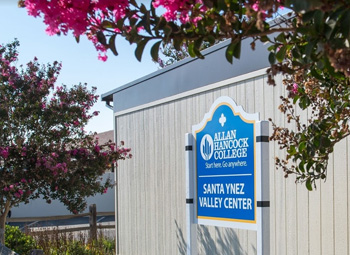Welcome to the AIM to Dream Center
The AIM to Dream Center supports undocumented students and students from mixed-status families in achieving academic, personal, and professional success. We advocate for students pursuing higher education and provide tailored services to meet their needs.
The AIM to Dream Center is located in Building G, Room 101.
AIM to Dream Center
Our center offers a welcoming space for undocumented students, mixed-status families, and allies. Services include immigration legal support, technology help, scholarships, workshops, and undocumented-centered events.
Hours
Santa Maria (Building G, Room 101)
Monday: 8 a.m. – 6 p.m.
Tuesday: 8 a.m. – 6 p.m.
Wednesday: 8 a.m. – 4:30 p.m.
Thursday: 8 a.m. – 4:30 p.m.
Friday: 8 a.m. – 4 p.m.
Lompoc Valley Center (Room 1-102K)
First Monday of every month
If you need assistance, please email aimstudent@hancockcollege.edu or call 805-922-6966 Ext. 3177.
We offer in-person and remote services. Visit us in Building G, Room 101, for help and guidance.
Meet Our Staff
Amalia Jimenez Chavez
Coordinator, AIM to Dream Center
amalia.jimeneztrejo@hancockcollege.edu
805-922-6966 Ext. 3179
Sarai Gonzalez
Office Services Technician I, AIM to Dream Center
sarai.gonzale@hancockcollege.edu
805-922-6966 Ext. 3177
Learning Facilitators
Roganuel Ortiz Prado
aimstudent@hancockcollege.edu
805-922-6966 Ext. 3177
Yaneli Dominguez-Garcia
aimstudent@hancockcollege.edu
805-922-6966 Ext. 3177
Interns
Rubi Basurto
Joscelyn Baca
Reasons to meet with the AIM to Dream Specialist may include:
- AIM to Dream services orientation
- Residency or employment questions
- Internships/scholarship guidance
- Referral to Student Support Services
- Immigration legal service
- Questions about AB 540 / AG waiver form
- Questions about the Dream Act / FA appeal documentation
WORKSHOPS/Events
- 8/12: Hancock Hello, 4–6 p.m. @ SM Campus, The Commons
- 8/27: Fall Open Reception, 10 a.m.–12 p.m. @ G101
- 9/05: How to Start a Business with an ITIN, 5–7 p.m. @ G106
- 9/19/25: Know Your Rights, 1–2 p.m. @ C-40
- 10/15/25: Parentification Workshop. 2-3 p.m. @ G-106
Registration Required: Parentification Workshop Registration Link
- 10/16/25: Know Your Rights, 2–3 p.m. @ C-40
- 10/17/25: Cine and Cultura: Selena, 5:30–8:30 p.m. @ Boyd Hall
- 10/18/25: Cine and Cultura: Zoot Suit with guest speaker Luis Valdez, 1–4 p.m. @ Boyd Hall
DREAM Club
The Dream Club is a staff and student-led club supporting and advocating for undocumented students. We advocate for immigrants' rights and support students in achieving higher education access. We also raise funds to provide scholarships and undocumented-centered events. We welcome all undocumented students from mixed-status families and allies to join us. You belong here!
Nuestras juntas son en español e inglés.
To get more information about the Dream Club, please contact the AIM to Dream Center at 805-922-6966 Ext. 3177 or email aimstudent@hancockcollege.edu.
FREE IMMIGRATION LEGAL SERVICES
Allan Hancock College and UFW Foundation are partnering to provide free immigration legal services to all students, faculty, and staff.
Students enrolled, in any capacity, at California Community Colleges can now access FREE immigration legal support from trusted direct service organizations.
AHC Financial Aid Scholarship List
2025-2026 MALDEF Scholarship
Immigrants Rising Scholarships and Fellowships
Immigrants Rising #UndocuHustle
CA Dream Act Service Incentive Grant Program
My Undocumented Life - College Scholarships
Central Coast Coalition for Undocumented Student Success
CCC-USS strives to support the undocumented community of the Central Coast. We serve Northern Santa Barbara County and San Luis Obispo County students, educators, family members, and allies. Read about our work here.
CA Community College Undocumented Resources
CA Dream Act Service Incentive Grant Program
The California Dream Act Service Incentive Grant Program (DSIG) encourages California Dream Act Applicant (CADAA) Students with a Cal Grant A award that met Cal Grant B eligibility or a Cal Grant B award to perform community or volunteer service. The California Student Aid Commission (CSAC) will award up to $4,500 per academic year (up to $2,250 per semester) to 1,667 eligible students. The grant will be available to the student for up to 8 semesters while they have an active Cal Grant A or B award. Students must also meet Satisfactory Academic Progress (SAP) and complete any necessary verification for their Cal Grant award.
For more information, visit the CSAC website or contact the AIM to Dream Center Office
National Immigration Legal Services Directory
Use the link below to search for immigration legal services providers by state, county, or detention facility. Only nonprofit organizations that provide free or low-cost immigration legal services are included in this directory.
#FindYourAlly - Higher Education Legal Services Project
What is Deferred Action for Childhood Arrivals (DACA)
DACA is an administrative relief that protects eligible immigrants who came to the United States when they were children from deportation. DACA gives undocumented immigrants: 1) protection from deportation, and 2) a work permit. The program requires that the DACA status and work permit be renewed every two years.
On August 30, 2022, the Biden Administration issued a new rule on Deferred Action for Childhood Arrivals (DACA) that will incorporate DACA into the Federal Regulations. Since its announcement, there have been several questions around who can access DACA now and what it means for all those first-time applicants who are waiting to obtain DACA.
In the Fifth Circuit’s January 2025 decision, the court agreed with Judge Hanen’s ruling that DACA is unlawful but modified Hanen’s ruling in two ways:
- The nationwide block on new DACA applications should be modified and only apply to Texas.
- The district court should consider DACA’s severability clause, which means work permits can be split from deportation protections.
NEW UPDATES
SEP. 29, 2025: There’s a lot of chatter going around about what is happening with Deferred Action for Childhood Arrivals (DACA). In particular, there is some misinformation regarding initial applications. Unfortunately, nothing has changed for now. DACA renewals remain open and initial applications have not restarted.
What this means for DACA recipients
- DACA renewals are still open. This could change, which is why we urge you to renew as soon as possible while the courts are still allowing these applications to be processed.
- First-time DACA applications will not be processed.
- Advance parole for current DACA recipients is still available.
We understand that this rollercoaster of court cases is exhausting and unfair. We stand with you, and we will never stop fighting to protect our communities.
Timeline: Texas v. United States
July 16, 2021: Judge Hanen from the U.S. District Court for the Southern District of Texas ruled that DACA is unlawful. But the court allowed people with DACA to continue to renew. The court blocked USCIS from processing first-time DACA requests.
September 2021: The Biden administration appealed the decision to the U.S. Court of Appeals for the Fifth Circuit.
July 6, 2022: Oral argument took place at the Fifth Circuit Court of Appeals for the case.
August 30, 2022: The Biden Administration published its final rule on DACA.
October 5, 2022: The Fifth Circuit Court of Appeals published a decision on the case, affirming that DACA is illegal and sending the case back down to the Texas District Court.
October 31, 2022: The Biden Administration’s DACA regulations went into effect.
June 1, 2023: Judge Hanen heard oral arguments again for the DACA case, focusing on the Biden Administration’s DACA rule.
September 13, 2023: Judge Hanen ruled DACA unlawful once again.
November 9, 2023: The Biden Administration appealed the decision to the U.S. Court of Appeals for the Fifth Circuit.
October 10, 2024: Oral arguments were heard at the Fifth Circuit Court of Appeals.
January 17, 2025: The Fifth Circuit Court of Appeals issued a ruling declaring parts of DACA unlawful but allowed current recipients to maintain their status while the case remains in litigation.
July 22, 2025: Judge Hanen of the Southern District of Texas ordered all parties in the DACA case to submit new legal arguments about how the case should move forward.
September 29, 2025: Parties in the Texas v. United States DACA case before Judge Hanen submitted briefs in response to a July court order by Judge Hanen. These briefs are simply proposals for how each party thinks the judge should move forward with the implementation of the 5th Circuit’s decision in the case.
DACA Returns to the district court
On Jan. 17, 2025, the U.S. Court of Appeals for the Fifth Circuit issued a decision regarding the DACA Final Rule. Pursuant to the court’s order, U.S. Citizenship and Immigration Services (USCIS) will continue to accept and process DACA renewal requests and accompanying applications for employment authorization under the DACA regulations. USCIS will continue to accept initial requests, but will not process initial DACA requests at this time. Current grants of DACA and related Employment Authorization Documents remain valid until they expire, unless individually terminated.
On July 22, 2025, Judge Hanen of the Southern District of Texas ordered all parties in the DACA case to submit new legal arguments about how the case should move forward. This is part of the ongoing Texas v. United States lawsuit challenging the legality of DACA.
The judge is asking for the parties in the case to submit written briefings about:
- Whether DACA work permits can be taken away only in Texas.
- Whether other states (besides Texas) should be allowed to challenge DACA.
- Whether it’s legal to separate work permits from deportation protections.
- How DACA would work geographically. For example, if someone moves into or out of Texas.
WHAT'S NEXT?
The Sept. 29, 2025 briefs were just the first set of briefs expected. Responses to these briefs are due Oct. 20, and replies to those responses are due on Oct. 27. After that, Judge Hanen will then schedule a hearing to further hear from the parties or issue instructions based solely on the brief filings. This is why nothing has changed for now. We must wait for Judge Hanen’s instructions following the briefing period, in which he will determine how U.S. Citizenship and Immigration Services (USCIS) will implement the changes to Texas DACA applications and all initial applications. The current DACA status quo has not changed. DACA renewals continue nationwide, including in Texas. Initial applications are still not being processed.
DACA continues to be on unsteady ground. Right now, we don’t know exactly what Judge Hanen will do once the briefings are complete. Potential options include:
- Schedule a hearing where both sides argue their positions, or
- Issue a ruling based only on the written briefs, without a hearing.
This is an evolving situation, and DACA can face additional legal and executive challenges, but here’s what we know at this time:
- The case has not moved to the U.S. Supreme Court.
- The Texas District Court is taking the next steps based on the Fifth Circuit’s ruling in January 2025.
- Until the court makes a new ruling, DACA renewals remain open, including in Texas.
We will continue to monitor the situation and provide updates as soon as we know more.
FAQ
First-time applicants
First-time applications are currently accepted by USCIS, but they are still prohibited
from processing the application under the Texas court order. First Time DACA FAQs
Current DACA recipients
Renewals continue to be allowed at this time, but this could change depending on any
new ruling from Judge Hanen at the District Court.
- My DACA expired less than a year ago. If your DACA expired under a year ago, USCIS will still process your renewal request as a renewal.
- My DACA expired over a year ago. If your DACA expired over a year ago, while you may still file for DACA, it will be considered an initial– or first-time– DACA request, and thus while USCIS will accept it, it may not process it under the Texas court order.
DACA Renewal FAQs | DACA Renewals 2025
Advance parole – permission to travel abroad
AP continues open while renewals are still open.
DACA recipients who have a valid reason for traveling abroad can still request advance parole (employment-based, humanitarian, or educational reasons). Vacation is not a valid reason. Learn more about advance parole and always consult with an immigration lawyer before traveling outside the United States.
What can we do now?
It's important that Congress pass permanent solutions for people with or without DACA,
TPS holders, farmworkers, essential workers, and our family members.
Source: Informed Immigrant
GENERAL
All people in the United States, regardless of immigration status, have certain rights and protections under the U.S. Constitution. The ILRC’s Red Cards help people assert their rights and defend themselves in many situations, such as when ICE agents go to a home.
------------
Todas las personas en los Estados Unidos — sin importar su estatus migratorio — tienen derechos y protecciones bajo la Constitución del país. Nuestras Tarjetas Rojas ayudan a los inmigrantes a ejercer esos derechos y protegerse en muchas situaciones, como cuando agentes de inmigración visitan nuestras viviendas.
How to use/Como usar Red Cards
ilrc.org/resources/using-your-red-cards
Artwork to print your own cards










